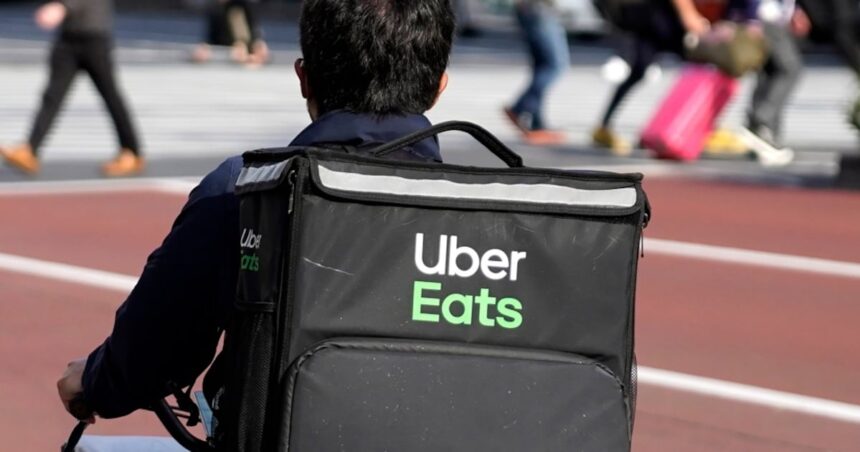Last week, a proposed class action lawsuit landed on Uber Eats Canada’s doorstep, accusing the food delivery giant of misleading consumers through a practice known as “drip pricing.” The suit claims the company advertises one delivery fee upfront but adds extra charges later in the checkout process.
I reviewed the 42-page statement of claim filed in Ontario Superior Court by Toronto resident David Trueman, who alleges he’s paid more than initially shown when ordering food through the platform. The suit seeks $200 million in damages on behalf of all Canadian customers who’ve used Uber Eats since 2016.
“Many consumers only discover the true cost after they’ve invested time building their order and reached the final payment screen,” said Jean-Marc Leclerc, partner at Sotos LLP representing Trueman. “By then, they’re psychologically committed to completing the purchase despite the higher total.”
The lawsuit centers on what consumer advocates call “drip pricing” – the practice of revealing mandatory fees gradually throughout the buying process rather than displaying the full price upfront. The Competition Bureau of Canada has previously defined this as a deceptive marketing practice that makes price comparison difficult for consumers.
According to the filing, Uber Eats displays an initial delivery fee on restaurant selection screens, but later adds a “service fee” at checkout. These service fees typically range from 3% to 15% of the food subtotal. For smaller orders, Uber may also add a “small order fee” of $2 to $3.
“I’ve personally documented dozens of transactions where the final cost exceeded the initially displayed delivery fee by 30% or more,” Trueman stated in an affidavit attached to the claim. “This seems designed to pull customers through the ordering funnel before revealing the true cost.”
The Competition Act prohibits businesses from making representations to the public that are “false or misleading in a material respect.” The lawsuit argues Uber’s pricing display meets this threshold by creating the impression that delivery costs are lower than they actually are.
Uber Canada spokesperson Keerthana Rang responded to my inquiry with a written statement: “We believe our app is transparent and we intend to defend against these allegations. Our pricing structure is clearly displayed throughout the ordering process.”
This isn’t the first time food delivery apps have faced legal challenges over pricing transparency. In 2020, the Competition Bureau reached a $4.7 million settlement with SkipTheDishes over similar allegations. That agreement required the company to ensure delivery fees shown to consumers include all mandatory charges except taxes.
Marina Pavlović, associate professor at the University of Ottawa’s Faculty of Law, told me these cases highlight broader concerns about digital marketplace transparency. “When platforms create friction in price discovery, they’re effectively interfering with consumer choice and market competition,” she said.
To test the allegations, I placed several test orders through Uber Eats. On a $30 food order from a downtown Montreal restaurant, the app initially displayed a $3.99 delivery fee. At checkout, a $4.50 service fee appeared, increasing the delivery-related charges by more than 110%.
The case also raises questions about the growing tension between convenience and transparency in digital commerce. A recent Dalhousie University study found 67% of Canadians who use food delivery apps feel the final price is often higher than expected when they first start ordering.
“This pattern of drip pricing exploits behavioral psychology,” explained Dr. Sylvain Charlebois, director of the Agri-Food Analytics Lab at Dalhousie University. “Platforms know consumers are less likely to abandon a cart after spending time selecting items, even when additional fees appear.”
For the class action to proceed, it must first be certified by the court – a process that determines whether the case is suitable for class treatment. If certified, it would represent all Canadian Uber Eats customers during the claim period without requiring them to actively join.
The lawsuit seeks damages for alleged violations of provincial consumer protection legislation and the Competition Act, along with an injunction requiring Uber Eats to change its pricing displays.
Consumer rights advocates are watching closely. “These digital marketplace cases are establishing important precedents for price transparency in Canada,” said Anita Khanna, executive director of the Consumers Council of Canada. “Clear, upfront pricing isn’t just good for consumers – it creates a level playing field for businesses competing fairly.”
Uber has 20 days from service to file a statement of defense. The allegations have not been proven in court, and the proposed class action requires judicial certification before proceeding.






